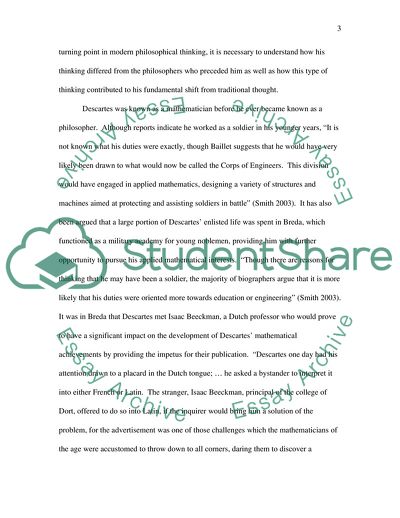Cite this document
(The Father of Modern Philosophy Essay Example | Topics and Well Written Essays - 2250 words, n.d.)
The Father of Modern Philosophy Essay Example | Topics and Well Written Essays - 2250 words. Retrieved from https://studentshare.org/philosophy/1703584-describe-and-assess-why-modern-philosophy-starts-with-rene-descartes
The Father of Modern Philosophy Essay Example | Topics and Well Written Essays - 2250 words. Retrieved from https://studentshare.org/philosophy/1703584-describe-and-assess-why-modern-philosophy-starts-with-rene-descartes
(The Father of Modern Philosophy Essay Example | Topics and Well Written Essays - 2250 Words)
The Father of Modern Philosophy Essay Example | Topics and Well Written Essays - 2250 Words. https://studentshare.org/philosophy/1703584-describe-and-assess-why-modern-philosophy-starts-with-rene-descartes.
The Father of Modern Philosophy Essay Example | Topics and Well Written Essays - 2250 Words. https://studentshare.org/philosophy/1703584-describe-and-assess-why-modern-philosophy-starts-with-rene-descartes.
“The Father of Modern Philosophy Essay Example | Topics and Well Written Essays - 2250 Words”. https://studentshare.org/philosophy/1703584-describe-and-assess-why-modern-philosophy-starts-with-rene-descartes.


